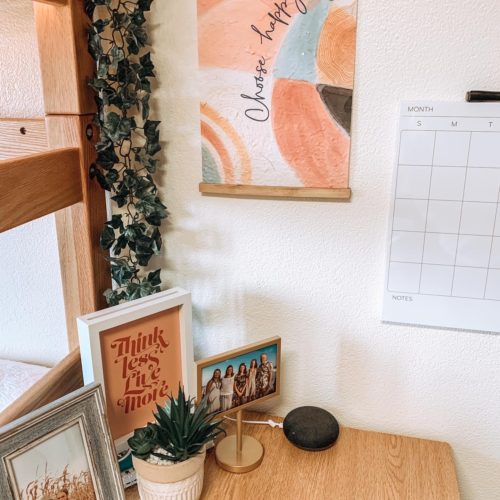Guide to Graduate School
Whether you are applying for grad school or just got accepted into a graduate program- CONGRATS, you got this! You are among just 12% of people that attend graduate school each year! I just finished a 2-year program in Speech-Language Pathology and man, it was tough. BUT- so worth it! Here are a few of my tips that helped me succeed and make graduate school not so bad as it may seem:
- Find a group of friends/classmates that you can use to study with!
- This is probably my #1 study tip! It is so important to find people you can study with, collaborate with, ask questions, and help you succeed. Maybe you missed something that was said in class, your friend can help you out! Quizzing each other is also a benefit. Teaching others is said to be a great way to see if you know your material! It’s also fun to go to a coffee shop and study! They will be there with you to pump you up and help you too!
- Ask your professors questions!
- If you are struggling with content or material, ASK! It’s better to get the answer from the one who is the professional than just guessing! I know it can be intimidating, but you will regret it if you don’t. They are there to help you and want you to succeed! No question is a dumb question.
- Re-watch online lectures
- If your professor or university records lectures- AMAZING. That way, you can always go back and re-watch the material in case you missed something!
- Organize your notes
- Everyone has their own way of studying or taking notes. Some people use an iPad or tablet and the iPad pencil to take notes in class. I like to type mine on the provided Powerpoint slides or use a Microsoft word document. Others print their notes prior to class and handwrite what is said aloud. Whatever style works for you- go for it! Color coding topics, chapters, etc. is also helpful!
- Do NOT compare to your peers!
- This is extremely hard to follow, but is essential in creating a positive mental health space. It is so easy to compare to classmates, especially regarding test scores, research projects, clinical/extra opportunities/involvements, etc. It’s SO important to remember that everyone’s journey is different! Maybe it’s just one bad test score. Someone else may be participating in this research study. They got this opportunity? COOL. You are just as competent and capable to be in this program as anyone else. Don’t think you don’t belong because of what you are comparing to classmates. This is your life and you are meant to be here! You earned it!
- Grades still matter…Kind Of
- This may depend on the university, but your grades in your classes do matter! (Kind of) Of course, you need to do your best in your classes to truly understand your material and make the most out of your education. With that being said- if you don’t do as well as you’d liked on an exam, talk to your professor. See if there is an alternative assignment or remediation you can complete. You may need to have a certain grade at the end of the semester to pass. However, an A vs. a B+ in a class is not going to determine how worthy you are as a future professional in the field. You will still graduate! Many college grads are considered “type A” personalities, meaning they have to be perfect in all areas. An A-, B or B+ is not going to matter, I promise you. It will be okay not to get an A, grad school is tough, but so are you!
- Take study breaks!!!!
- Take study breaks and take them often- well, not too often haha. But make sure to take time for yourself too. Get a coffee, go exercise, watch an episode (or 2) of Netflix. Study in spurts. I like to set a timer on my phone for 1 hour and put it on Airplane mode/Do not disturb. After 1 hour, I can reward myself with a little break to check my social media, etc. This helps motivate you to work for that whole hour without distractions!
- Asking professors for Letters of Recommendations/References
- This idea was always intimidating for me. Maybe you have already completed this step to get into a graduate program. Maybe you are in the process of applying. Either way, professors know this is a requirement and will ALWAYS be happy to help you. Even if you don’t think they know you, they do. Make sure to give them enough time to write a letter for you and provide any required documents that may assist them in writing on your behalf (resume, transcript, etc.). Going into their office in person is best, but some are okay with an email as well.
- Do not be discouraged if you didn’t get into your “DREAM” school
- Everything happens for a reason. It will all work out! Maybe you didn’t get into your dream school, but got into others. No matter where you go, you will have amazing opportunities that will help you become successful. You never know what lies ahead until you take a chance! That smaller school you never considered might be the best decision you ever made. You can always try again next year if you are still determined. But, don’t be discouraged. You will learn and grow as a professional no matter where you go! Grad school will provide you with challenges that you can overcome.
- And last but not least- HAVE FUN!
- I’m not lying when I met some of my best friends in college AND grad school! You are together everyday, from classes, clinical’s (if you have them), maybe even being roommates with them! Overall, you will spend a LOT of time together over the course of your graduate program. We had nights where we invited everyone in our class (cohort) over for bachelor night. We hosted a Super Bowl party and everyone brought a dish to share. We’ve celebrated birthdays together, passing big midterms/finals, and even before we all graduated and went our separate ways. We are all in this together and it’s SO important to make memories and have some fun along the way.
I hope this helped!! If you have any questions- please reach out to us! We are happy to give you our advice or listen to your concerns! Thank you so much for reading! 🙂





